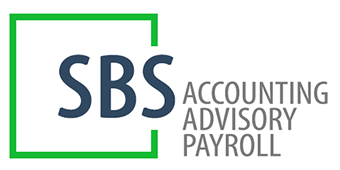On October 18, a package of tax law changes was announced that will affect a number of tax areas, including significant changes to corporate income tax and permanent investment accounts, as well as administrative simplification and tax liability. The following is a summary of the main tax areas where taxpayers can expect changes
Corporate Tax Information Reporting – New Reporting Obligations for Multinational Corporations
In line with EU requirements and the need for transparency in the tax burden of multinational companies, multinationals will face new accounting reporting obligations. From now on, companies with consolidated turnover exceeding HUF 275 million for two consecutive years will have to prepare a report including corporate income tax information. The report will be prepared by the parent company and will include, in addition to general information, sales, pre-tax profits, corporate income taxes, and withholding taxes by country. The report must be issued and filed annually.
Permanent Investment Accounts – Expansion of Beneficiaries
Under the proposal, the scope of persons who may enter into permanent investment agreements would be expanded beginning early next year to include trusts that perform fiduciary services under certain conditions. Under the concurrent amendment to the Tao Law, income from trust deeds would be taxed as if the individual beneficiary of the trust deed had entered into the trust. As a result, returns earned on long-term investments at the end of the five-year lock-up period will be fully tax-exempt.
If the TPS is terminated prior to the end of the five-year lock-up period, or if a partial withdrawal is made at the end of the third year, resulting in a tax liability, the tax liability would be borne by the trust on the foundation’s assets. To ensure that income from permanent investments is not treated as a taxable dividend when distributed by the trust to individual beneficiaries, it is important that the trust maintain records that clearly identify the amount of income from the TPO.
Accommodations for Taxpayers Who Elected to be Taxed at the Declining Rate and Excluded from Kata
The proposed law would allow taxpayers to elect simplified taxation after Qata, a tax benefit previously prohibited by law, and would shorten the period during which taxpayers previously elected declining-balance taxation and were prohibited from electing it again. Since Kata, most people have opted for equalization taxation under the Income Tax Law, and the proposal favors them by reducing the frequency of equalization taxpayers’ contributions to quarterly.
Business Tax – Reduction for Small Businesses
Further relief in the area of business tax is the introduction of a flat-rate tax system for small businesses (a small business is defined as a business with annual sales not exceeding 25 million HUF or 120 million HUF in the case of a flat-rate retail business). The Law allocates a tax base amount to each income bracket, which is paid once a year at the end of May, and does not require a final tax return. The minimum business tax rate is HUF 50,000 (calculated at the SBA tax rate of 2%) and can be applied to annual income up to HUF 12 million.
Ad Tax – tax rate remains 0%
The suspension of ad taxation has been further extended until December 31, 2023. The ad tax is one of the “digital taxes” that Hungary would have abolished in the framework of international cooperation if the OECD had formulated a unified tax on international technology companies as the first pillar of its global tax reform. However, this has not been implemented so far, and the focus is instead on the second pillar, the introduction of a global minimum tax. However, given the current economic situation, the ad tax could be reintroduced in a year’s time, depending on the actions of those involved in the advertising market.
Increased Taxation of Real Estate Transactions by Affiliated Companies
Those who are currently planning to reorganize a group of companies and who have large real estate holdings in one company and wish to group them with other companies should act quickly.
Under the draft, real estate transactions between related companies will no longer be exempt from customs duties if less than 50% of the acquiring company’s net sales in the previous year were derived from real estate transactions.
At the same time, the draft also provides that if a trust acquires an asset as a beneficiary, it should be exempt from duty, taking into account that the trust is also the beneficiary of the assets it controls under the relevant legal provisions.
Excise Tax – Amendments to the Definition of Sign Diesel
In the excise tax area, the amendment brings the definition of marked diesel in line with the application of the common fiscal marker in EU law. The change will define marked diesel as products with the markings Solvent Yellow 124 or ACCUTRACE PLUS. In addition, the electronic documentation used to prove duty exemption in customs suspension procedures will be changed in order to align with EU excise tax legislation.
Customs Administration – Clarification of Penalty Procedures
With regard to customs administration, clarifications will be introduced regarding customs penalties that do not lead to a customs deficit. The amendment stipulates that in the assessment of penalties, the frequency of violations must only be investigated within one year for the trader concerned. The conditions under which a warning may be applied as a penalty are clarified. A warning may be issued if the person involved commits a violation for the first time within one year and other conditions are met.
Special Employee Stock Ownership Plan
Participants in the KMRP may place their member shares in a trust foundation and receive shares as beneficiaries of the trust foundation. In this connection, the proposal would amend the rules of the Income Tax Law regarding the acquisition value of assets acquired in the form of securities. For the grantor, the benefit would be a recognized cost; for the trust, the benefit would be tax-free.
Electronic Charging Stations – “Minimal” Assistance
Electric charging stations would fall under “de minimis” assistance in the draft, although it is also possible to claim this assistance under the Commission’s emergency communications rules. It should be noted that the latter is a transitional period, but for those who still wish to take advantage of this program, it is a plus that the amount of assistance received under this item will not count toward the de minimis limit.
The new rules will be effective for tax returns filed after January 31, 2022, allowing taxpayers to decide for the first time whether to claim benefits under the de minimis or crisis notification rules.
De minimis’ aid is a form of de minimis state aid that is capped at
VAT: Two-Year Extension of Reduced Rate
This proposal would extend the validity period of Decree 267/2022 of December 20, 2008 (applying the reduced VAT rate to new residential real estate) to the legal level. (29.7.) extends for two years the validity of the reduced VAT rate of 5% on sales of new residential real estate and includes transitional measures to address construction delays.
The Coming of e-Retirement
Based on the experience gained with online cash registers and invoice data services, the provision of data could take into account the acceleration of digitization, which in the future may involve updating cash register systems, and could also facilitate the incorporation of electronic receipts in an environmentally friendly manner. As a first step in this direction, the proposal submitted would authorize ministerial-level legislation to establish detailed rules for the general provision of receipt data and the use of non-cash register equipment and technology for issuing machine receipts.






Comments are closed.